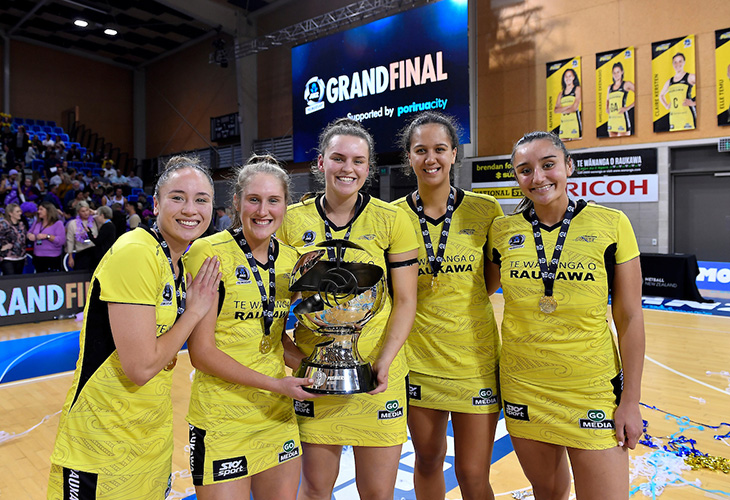A focus on developing homegrown talent has paid dividends for Netball Central after the Zone blazed its way to New Zealand’s two premier domestic titles in 2019.
Te Wānanga o Raukawa Pulse finally secured their first major reward in 11 years of trying to snare this year’s ANZ Premiership while Central Manawa continued their successful strike rate in the Beko Netball League with a third successive title to complete a unique double for the Zone.
Since the introduction of the Beko League four years ago, specifically designed to strengthen the performance pathway for new talent, Netball Central has seemingly found the right formula with the close alignment of the Pulse and Manawa teams throughout the competition season going on to produce a steady stream of success.
``We have a performance plan here that is about developing a homegrown Pulse team and in order for that to succeed, our Beko team has to be successful and our talent development programmes have to be feeding,’’ the Zone’s High Performance Director, Wai Taumaunu said.
``We see it as a sustainable talent pathway which is all feeding towards a successful Pulse team on and off the court.’’
Each team has played a strong role in preparing the other, weekly match play during the season being a key component despite the daunting prospect that initially faces the young mainly teenaged Beko players.
``My experience, so far, is that at the start of the year, the Beko team is hammered by the Pulse and then as time goes on, they get better and better, and the scores get closer,’’ Taumaunu said.
``We do a variety of things around our practise requirements and what we think we need for the upcoming weekend, so every year we’ve started off and the gap’s been huge but got smaller. Also, every year, we’ve got to the point where we’ve wanted to engage with the Beko team because they provide us (Pulse) the best challenge.
``That growth in the Beko team has happened each year. They do have to be encouraged early on because it’s a little bit demoralising for them the first few weeks but it gets better and it certainly makes a difference to them. Our Beko team’s driving purpose is to create Pulse players and we really care about that.’’
With financial and player sustainability being the two most challenging aspects facing all Zones, the direction of Netball Central to look inward seems to make perfect sense.
``It became very clear that what we didn’t want to do every year was wind up in a bidding war because that’s what happens,’’ Taumaunu said. ``And one of the big things we can do to help that is to keep growing our local talent.’’
Currently working on the next three-year performance plan for Netball Central, Taumaunu believes the rules around the Beko League need tweaking to ensure all promising young players around New Zealand are getting the development and playing opportunities they deserve.
``I don’t think it’s perfect because there were probably four or five youngsters who should have been playing in the Beko and because of rules and some pretty po-faced administrators they weren’t,’’ she said.
Tiana Metuarua (Pulse), Jennifer O’Connell and Courtney Elliott (Steel) and Kate Lloyd (Tactix) were prime examples of a significant but underdone talent pool sitting on ANZ Premiership benches and unable to play in the Beko League because they had filled their quota of quarters played in ANZ.
``I think the intent of the competition is right and, generally, it’s sound, but this year really identified that we have to do something a bit smarter around how we deal with the youngsters who (have previously) played a lot of quarters (in ANZ) but for whatever reason didn’t get on court this year,’’ Taumaunu said.
``It is the respective coach’s roles to try and win the ANZ Premiership and I get that but some of our best young talent wound up not playing and that’s not a good thing.’’
